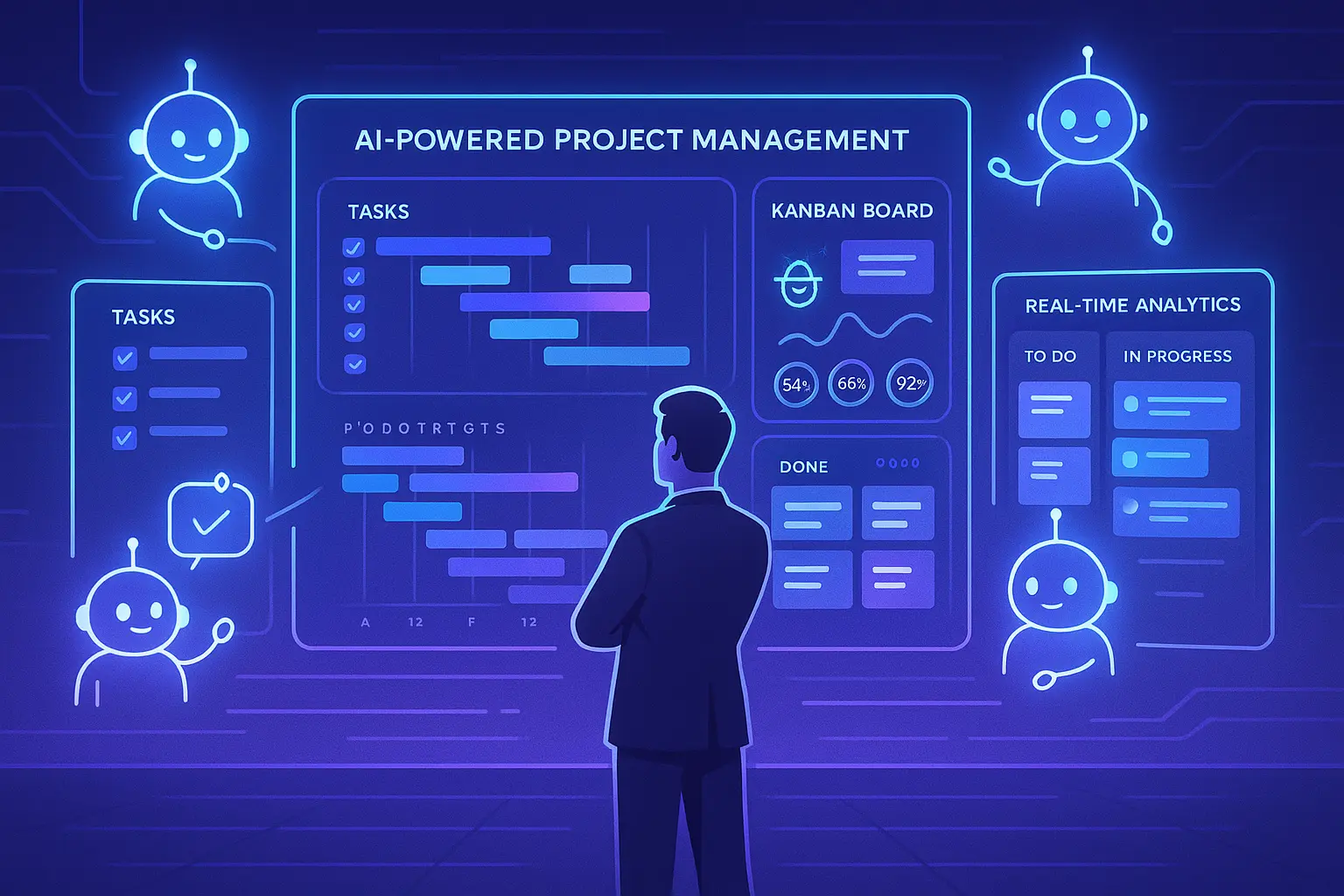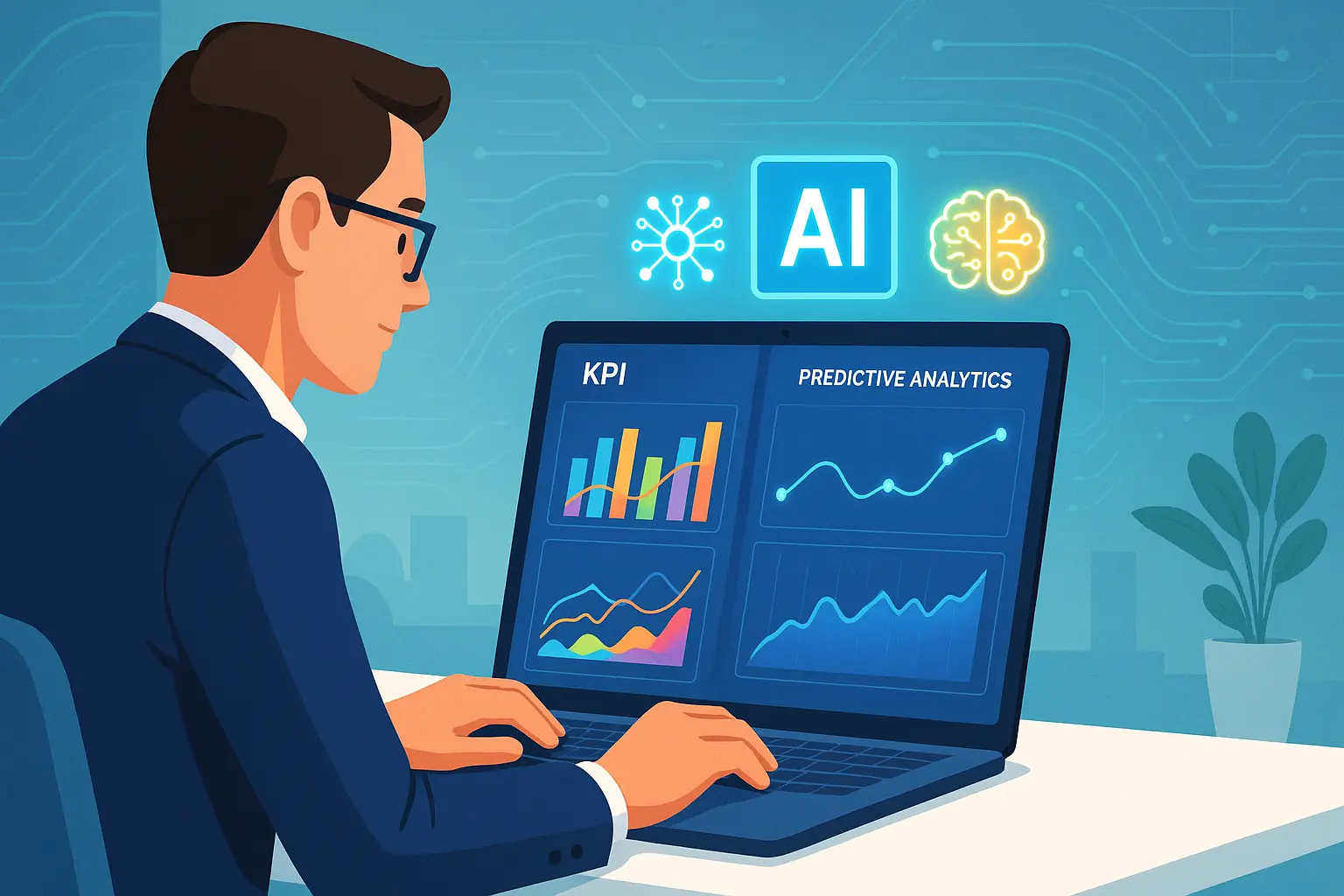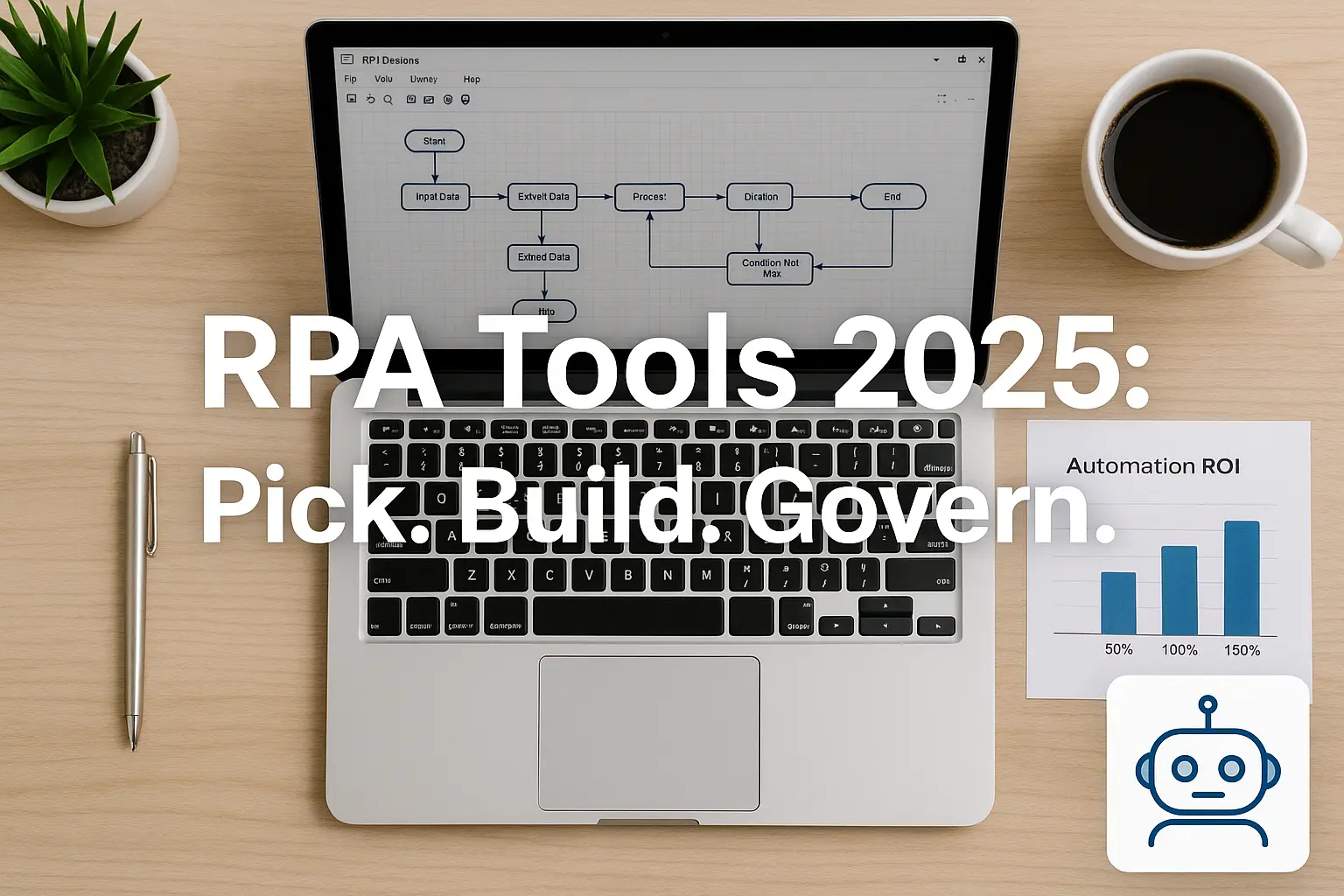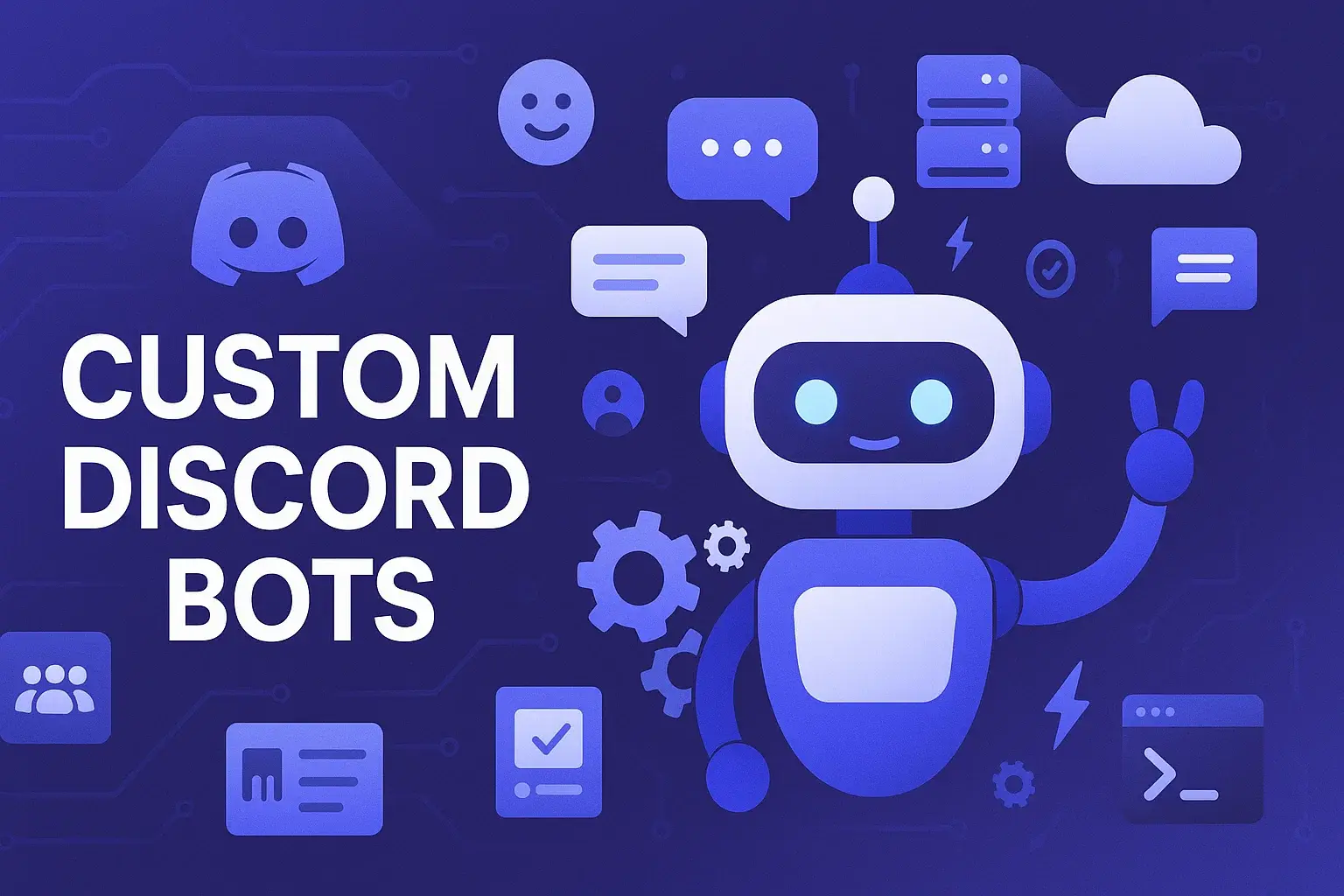As project managers navigate increasingly complex workflows and tighter deadlines, the best AI tools for project managers are becoming indispensable allies. In 2025, these innovative solutions leverage artificial intelligence to streamline tasks, enhance team collaboration, and ensure on-time delivery, making them must-haves for boosting productivity.
Project management has evolved dramatically with the rise of AI. Gone are the days of manual Gantt charts and endless status meetings. Today, AI assistants handle workflow automation, predictive scheduling, and real-time reporting, allowing project managers to focus on strategy and leadership. Whether you're a team lead in a startup or a founder juggling multiple hats, integrating AI can transform chaos into clarity. This article dives deep into the best AI tools for project managers, exploring their features, benefits, and how they fit into your daily grind.
Why Project Managers Are Turning to AI
In a world where projects are more distributed and data-driven than ever, AI offers a lifeline. According to industry reports, AI adoption in project management has surged by over 50% in the past year alone, driven by the need for efficiency in remote and hybrid teams. Project managers face mounting pressures: tighter budgets, diverse stakeholder expectations, and the constant threat of scope creep. AI steps in by automating repetitive tasks like task assignment and progress tracking, freeing up time for high-value activities.
Consider the impact on productivity—AI tools can reduce project planning time by up to 30%, enabling faster iterations and better resource allocation. For consulting firms, AI tools for consulting provide insights into client needs through data analysis, while ai tools for creativity spark innovative problem-solving in brainstorming sessions. Even free ai tools for human resources help with team onboarding and performance tracking, making AI accessible to small teams. By integrating with existing dashboards and KPIs, these tools ensure every decision is data-backed, ultimately boosting conversion rates from ai tools by optimizing project outcomes.
What Makes an AI Tool Great for Project Management
Not all AI tools are created equal. When evaluating the best AI tools for project managers, focus on key criteria: ease of use, integrations, and ROI.
- Ease of Use: Intuitive interfaces with minimal learning curves are crucial. Look for tools with natural language processing for quick queries and automations.
- Integrations: Seamless connectivity with platforms like Slack, Google Workspace, or CRM systems ensures workflow continuity.
- ROI: Measure value through time saved, error reduction, and scalability. Tools that offer predictive analytics for risks and resources deliver high returns.
Popular ai tools by monthly visits, such as those with millions of users, often excel in these areas due to community-driven improvements. For instance, ai tools for business research integrate data from multiple sources to inform decisions, enhancing overall project success.
Pro Tip: Start with a free trial to test integrations in your real workflow—don't commit until you've seen tangible productivity gains.
Detailed Reviews of Top AI Tools
Here, we review 9 standout AI tools, focusing on their AI-driven features, strengths, ideal use cases, and pricing models. Selections are based on user adoption, features, and 2025 relevance.
1. ClickUp
ClickUp's Brain AI embeds intelligence across the platform, automating projects and meetings.
Strengths: Saves up to 1.1 days per week by auto-tracking progress, prioritizing tasks, and generating content. Enterprise-grade privacy ensures data security.
Ideal Use Case: Large teams in software development needing autonomous task management and integrations with Jira or Slack.
Pricing Model: Free plan available; AI features start at $5/user/month on Unlimited plan, with Enterprise options for custom AI agents.
2. Asana
Asana Intelligence uses AI for workflows and insights, keeping projects on track.
Strengths: Customizable AI workflows reduce manual tasks; trusted security for enterprise use.
Ideal Use Case: Marketing teams scaling campaigns with automated goal setting and status updates.
Pricing Model: Basic free; Premium at $10.99/user/month includes AI; Enterprise for advanced features.
3. Monday.com
Monday.com's AI Assistant integrates into visual boards for task updates and collaboration.
Strengths: Adaptable platform with AI for predictive analytics and automation, supporting diverse workflows.
Ideal Use Case: Consulting firms using ai tools for consulting to organize client projects and generate reports.
Pricing Model: Free for individuals; Basic $8/user/month; Pro $16/user/month with full AI.
4. Wrike
Wrike AI provides recommendations and automates mundane tasks.
Strengths: Quick answers and outcome predictions; strong data model for insights.
Ideal Use Case: Operations teams in finance for risk prediction and workflow optimization.
Pricing Model: Free plan; Professional $9.80/user/month; Enterprise with AI custom pricing.
5. Notion
Notion AI excels in content generation and database automation.
Strengths: Autofills databases, translates content, and integrates apps; GDPR-compliant.
Ideal Use Case: Startup founders using ai tools for creativity to build wikis and track KPIs.
Pricing Model: Free with limited AI; Plus $8/user/month; Enterprise includes unlimited AI.
6. Jira (Atlassian Intelligence)
Jira's AI handles queries, subtasks, and automations in natural language.
Strengths: Detects incidents faster; saves time on searches (up to 45 minutes per user).
Ideal Use Case: Tech teams managing software projects with dependency mapping.
Pricing Model: Free for small teams; Premium $7.75/user/month includes AI; Enterprise custom.
7. Motion
Motion's AI Employees like Millie automate task prioritization and scheduling.
Strengths: Balances 1,000+ parameters for tasks; integrates with calendars and CRMs.
Ideal Use Case: Busy team leads optimizing time blocks and resource allocation.
Pricing Model: Individual $19/month; Team $12/user/month with AI suite.
8. Hive
Hive's Buzz AI creates projects and shares insights.
Strengths: Multiple views (Gantt, Kanban); integrates with Zapier for automation.
Ideal Use Case: Agencies reducing meeting times with AI summaries.
Pricing Model: Free trial; Starts at $5/user/month.
9. Productive
Productive automates time tracking and profitability forecasts.
Strengths: Real-time insights; integrates with accounting tools like Xero.
Ideal Use Case: Professional services firms tracking budgets and utilization.
Pricing Model: Starts at $9/user/month; Enterprise custom.
Quick Win: Integrate your chosen tool with existing apps early to maximize ROI—test one workflow at a time.
Real-World Examples / Case Studies
Case Study 1: Marketing Agency Overhaul
At a mid-sized marketing agency, implementing ClickUp's AI led to a 40% reduction in planning time. The team used autonomous task assigning to distribute workloads based on skills, integrating with Slack for real-time updates. This illustrative example shows how AI boosted collaboration, allowing the agency to take on 20% more clients without hiring, while improving KPIs like on-time delivery from 75% to 95%.
Case Study 2: Startup Resource Optimization
A tech startup founder adopted Notion AI for project wikis and HR tasks. By autofilling databases with performance insights and using free ai tools for human resources, they streamlined onboarding. This cut administrative hours by half, enabling focus on ai tools for business research to identify market gaps. Illustratively, this resulted in a 25% faster product launch and higher team satisfaction scores
Case Study 3: Consulting Firm Efficiency
In a consulting firm, Monday.com's AI Assistant automated reporting and task updates, integrating with CRM for client data. This enhanced ai tools for consulting by predicting project risks, boosting conversion rates from ai tools through data-driven proposals. Illustratively, project delivery improved by 35%, with teams collaborating seamlessly via dashboards, reducing errors and enhancing client trust.
Risks and Limitations
While powerful, AI tools have drawbacks. AI bias can skew recommendations if training data is flawed, leading to unfair task assignments. Data privacy is paramount—ensure tools comply with GDPR and avoid sharing sensitive info. Over-automation risks disengaging teams, so balance AI with human oversight. In 2025, limitations include dependency on quality data inputs and potential integration glitches.
Pro Tip: Audit AI outputs regularly for bias and accuracy to maintain trust and compliance.
Future of AI in Project Management (2025–2030)
By 2030, AI will dominate with advanced predictive models for hyper-personalized workflows. In 2025, trends include deeper integrations with VR for virtual collaborations and AI for sustainability tracking in projects. Expect more voice-activated assistants and blockchain for secure reporting. As AI evolves, project managers will shift to strategic roles, with tools handling 70% of routine work.
FAQs
What are the best AI tools for project managers?
The best AI tools for project managers include ClickUp, Asana, and Monday.com, offering automation, insights, and collaboration features tailored to boost productivity.
How can AI improve project delivery?
AI enhances project delivery through predictive analytics, automated scheduling, and real-time reporting, reducing delays and optimizing resources for on-time completion.
Are AI tools worth it for small teams?
Yes, even small teams benefit from free tiers and scalable features, saving time on tasks like HR management and collaboration without high costs.
Conclusion & Key Takeaways
In summary, the best AI tools for project managers in 2025 empower you to achieve more with less effort. Key takeaways: Prioritize tools with strong integrations, start small with automations, and monitor ROI through KPIs. Embrace AI to elevate your projects—your team's productivity depends on it.
Quick Win: Schedule a weekly AI review meeting to refine tool usage and uncover new efficiencies.



